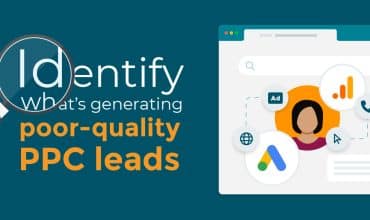When PPC optimisation goes wrong (and how to fix it)
Pay-per-click (PPC) advertising has grown itself a reputation as something of a dark art – a digital marketing medium that requires an acute blend of cunning creativity and scientific sleuthing to achieve even a modicum of success.
Optimising PPC campaigns can be a time consuming and frustrating task. In fact, in a recent survey of PPC marketers by PPCSurvey.com, 16% of respondents said they counted poor performing ads as their biggest frustration when it comes to pay-per-click advertising.
When we speak to Mediahawk clients across different industries, we often hear the same thing, with four or five PPC optimisation and campaign management challenges cropping up on a regular basis.
So what are those campaign optimisation and management challenges, and how can marketers tackle them once and for all?
1. Poorly performing ads
Let’s go in head first with the big one – when your ads just don’t bring the return you’re looking for. Perhaps your campaigns have historically performed well, but you suddenly notice a drop in conversions. What’s going on? There are many reasons why this can happen; for example a shift in customer buying behaviour. Your analytics tools are your best friend here, and should show you what’s happening behind the scenes.
Some things to think about:
- Are particular keywords, campaigns or ad groups affected more than others?
- If there’s been a drop in online conversions, has there been a corresponding increase in customer phone calls?
- If phone calls are a factor for you, try to better understand why customers are calling you. From this, you can start to deduce whether your ads or landing pages are misleading and resulting in the ‘wrong’ types of phone calls.
2. Tracking and data issues
This is all about closing the gaps in your data – the difference between what your analytics tools measure and the real-world data itself. Commonly those gaps will be your phone calls, which are an offline source that often isn’t included in analytics data sets. This is a big problem, because genuine and lucrative leads come in by phone every day. If these leads aren’t part of your PPC ad performance reports, your campaigns will appear to be underperforming.
You need to be 100% certain the data you’re receiving about your ads is accurate and provides a clear picture. You need to have a view of the entire visitor journey (ideally at an individual level), so you can truly know every marketing source and interaction.
Knowing the true ROI of your ad campaigns is crucial so you can make better informed decisions about your PPC strategy. This is only possible if you have a completely accurate picture of how many touchpoints lead to a conversion and where in the funnel you are losing people.
Read how Dormy Care Communities improved paid ad performance and made wiser budgeting decisions.
3. Ad platform duopoly
Let’s face it – the paid ad market is ruled by two platforms: Google and Facebook. The PPCSurvey.com report states that many marketers “appear to play it safe by mostly focusing on Google, Facebook and Instagram” for their PPC campaigns. This approach is ‘safe’ because those are the most prolific and commonly used platforms. But they’re not necessarily the most effective for every business.
The issue here is knowing which platforms work best for you. Yes, your hand may be forced to invest budget in those big names. But by experimenting with and tracking the response from these platforms and others, you’ll be able to invest more confidently in the right platforms and the marketing mix that works best for you.
4. Lack of control
Many marketers feel they lack control when it comes to knowing what’s really going on with their PPC ads. This is especially true when working with an agency.
For example, your agency may tell you that you’ve had loads of enquiries through your ads, but how do you know for sure without seeing the data?
Accessing your own campaign data is key to this. And getting complete visibility of everything that’s happening behind the scenes means you’ll be much better placed to make informed decisions for your business.
Of course, this shouldn’t be a headache to achieve. Your analytics tools should make this easy for you – giving you a 360-degree view of how your campaigns are performing at the touch of a button.
This will give you the power to question any ‘recommended’ practices, such as applying broad match, automated bidding and increasing ad spend. And with greater transparency of what’s really working for you, you can confidently steer clear of any practices that take control out of your hands.
Read how Barchester Healthcare uncovered the paid ad phone enquiries that lead to move-ins.
5. Repetitive and manual tasks
Search query mining, reporting, and writing ads are the top three most time-consuming tasks that marketers said they would love to automate.
Luckily, these tasks can all be easily automated with the right technology.
For employers, this could be a dealbreaker for their teams. Adobe’s State of Work report found that 49% of workers say they’re likely to leave their current job if they’re unhappy or frustrated with workplace tech.
When it comes to PPC optimisation, manual and repetitive tasks leave marketers more frustrated than ever. It means investing in the right tech for PPC campaigns not only improves efficiency and profitability, but also drives employee satisfaction and workplace morale.
It means investing in the right tech for PPC campaigns not only improves efficiency and profitability, but also drives employee satisfaction and workplace morale.
These PPC challenges are a common sticking point for marketers. But they can all be solved – or at least minimised – with the right technology in place.
And with technology helping you streamline processes and drive data transparency in your campaigns, you’ll find the dark art of PPC becoming an awful lot brighter.

If you aren’t tracking your phone calls, you’ll be missing crucial leads. Download our e-book and learn how to see the full picture.



